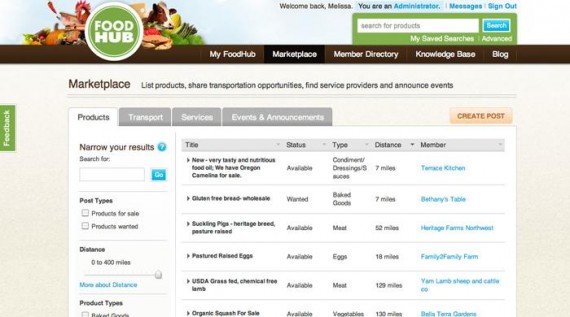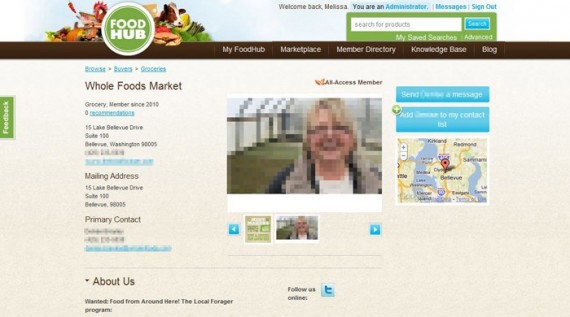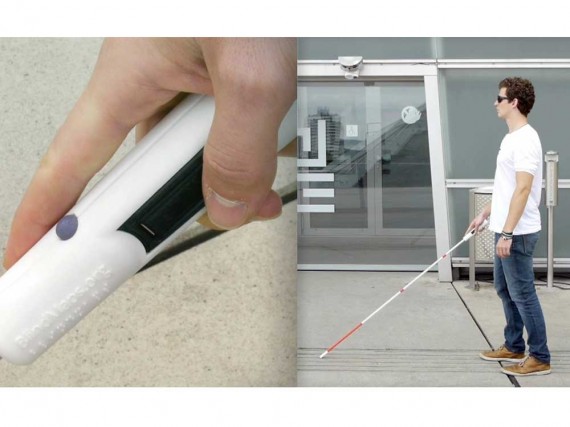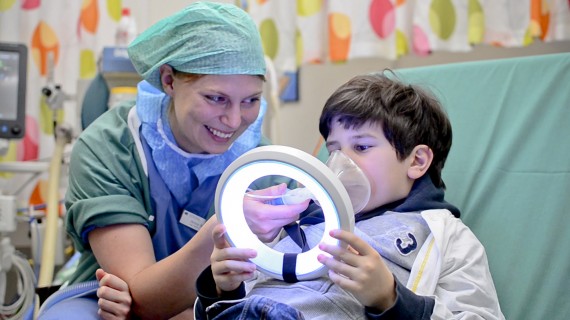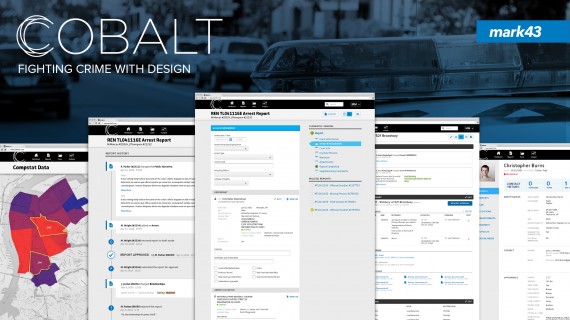FoodHub: a digital community where local food people connect
Team
Company | Institution
Category
Type
Project description
If you have an interest in local foods and food hubs, you will have heard of FoodHub. It is one of the most sophisticated, well-developed (and still developing) networks in support of these goals anywhere in the U.S.” Jeff Deiss, USDA Rural Development, Oregon State Office. FoodHub is an online community for professional food people. It’s open to commercial buyers, producers, distributors, media, industry suppliers, farmers’ market managers, and trade associations in California, Oregon, Washington, Idaho, Montana and Alaska.
Tiered membership lets organizations choose the features they need; entry-level membership is always free. Chefs, restaurateurs, food service directors and other buyers can: Find local products easily; See producer backgrounds and ratings; Make contact with a click.
Farmers, ranchers, fishermen, dairies and other producers can: Promote their products; Tell the story of what makes them special; Find the right contact quickly.
Trade associations, farmers’ markets, and industry suppliers can: Prospect for potential clients, members, or donors; Find the right contact quickly; Promote their services.
Broadline and specialty distributors can: Find potential new accounts; Research local producers; Keep abreast of the regional food economy.
Business-to-business connections facilitated by FoodHub help put high- quality, seasonal food in schools, restaurants, grocery stores and homes.
Context
“FoodHub has been a great way for us to find local sources. We want to keep these smaller farmers in business, and the only way to do that is if we’re all buying from them.”
– Susan Baker, Columbia County Natural
This is an important time for food, and for its makers and consumers. The local food renaissance that we enjoy in the Pacific Northwest (and that is gaining steam across the nation) has been constrained by lack of connection. A peach farmer needs a buyer at the precise time his peaches are ripe. A caterer gets a last-minute request for duck: Who’s got some today for an event tomorrow? Restaurants open, restaurants close; it’s hard to keep track of who might want your fresh creams and fruit jams, and how you can get those products on the right truck.
The team sees FoodHub’s role as that of a matchmaker. Members might develop a long-term relationship or make only a single connection — it’s not for us to judge. We simply aim to create an environment of relevant discovery that addresses a farmer’s needs as different from (but equally as important as) those of a caterer, dairyman, or distributor.
Impact
“We’re not planting more crops; instead we’re planting more of the crops that grow better here. We used to raise 30 different varieties to take to farmers’ markets. Now I grow 16 crops that do really well here and I sell it all because of the connections I’ve made on FoodHub.”- Phil Greif, PD Farms
FoodHub is changing the way its members do business; we know this because they tell us on a regular basis. So we’ll let them speak for themselves. In addition to stories like Phil’s, we hear inspiring comments like these:
- “…broadens our market with just a click…”
- “…cuts out a lot of the leg work and makes the initial contact a friendlier experience.”
- “With the connections we find […], we can extend and refine our product line…”
Some of our favorite stories stem from local food’s reach into our schools.
For example: Portland Public Schools features one regionally grown item on their menu each month so students can learn about and taste regional agriculture. At 20,000 meals a day, the district is one of the largest in the state and is challenged to find producers who can meet its volume. FoodHub is a key resource.
Craft
“There’s not a single new feature that didn’t come from our membership.”- Deborah Kane, VP of Food & Farms, Ecotrust
Our members’ voices are our most valuable asset. Audience research (interviews, testing, focus groups, informal chats) have played – and will continue to play – a major role in FoodHub’s evolution. Ongoing feedback coupled with the team’s desire to make an immediate impact with every upgrade leads to content and features that are most critical to the community at each stage of its evolution. Once we’ve agreed to a direction, the entire team participates in ideation and early-stage design. High-energy whiteboarding sessions engage the client and the agency in a visible way that helps incorporate every voice into the solution while minimizing miscommunication.
Finally, the design is submitted to cross-team reviews at every stage. The agency views flawless execution as everyone’s responsibility, regardless of role: Developers ask about users; creatives help drive performance; UXers seek technological inspiration.
We consider FoodHub a well-informed, thoughtful and ever-evolving solution to the networking challenges facing the regional food economy. We look forward to going national in 2012, but seek to always serve the region and the individual to the best of our ability.
Tiered membership lets organizations choose the features they need; entry-level membership is always free. Chefs, restaurateurs, food service directors and other buyers can: Find local products easily; See producer backgrounds and ratings; Make contact with a click.
Farmers, ranchers, fishermen, dairies and other producers can: Promote their products; Tell the story of what makes them special; Find the right contact quickly.
Trade associations, farmers’ markets, and industry suppliers can: Prospect for potential clients, members, or donors; Find the right contact quickly; Promote their services.
Broadline and specialty distributors can: Find potential new accounts; Research local producers; Keep abreast of the regional food economy.
Business-to-business connections facilitated by FoodHub help put high- quality, seasonal food in schools, restaurants, grocery stores and homes.
Context
“FoodHub has been a great way for us to find local sources. We want to keep these smaller farmers in business, and the only way to do that is if we’re all buying from them.”
– Susan Baker, Columbia County Natural
This is an important time for food, and for its makers and consumers. The local food renaissance that we enjoy in the Pacific Northwest (and that is gaining steam across the nation) has been constrained by lack of connection. A peach farmer needs a buyer at the precise time his peaches are ripe. A caterer gets a last-minute request for duck: Who’s got some today for an event tomorrow? Restaurants open, restaurants close; it’s hard to keep track of who might want your fresh creams and fruit jams, and how you can get those products on the right truck.
The team sees FoodHub’s role as that of a matchmaker. Members might develop a long-term relationship or make only a single connection — it’s not for us to judge. We simply aim to create an environment of relevant discovery that addresses a farmer’s needs as different from (but equally as important as) those of a caterer, dairyman, or distributor.
Impact
“We’re not planting more crops; instead we’re planting more of the crops that grow better here. We used to raise 30 different varieties to take to farmers’ markets. Now I grow 16 crops that do really well here and I sell it all because of the connections I’ve made on FoodHub.”- Phil Greif, PD Farms
FoodHub is changing the way its members do business; we know this because they tell us on a regular basis. So we’ll let them speak for themselves. In addition to stories like Phil’s, we hear inspiring comments like these:
- “…broadens our market with just a click…”
- “…cuts out a lot of the leg work and makes the initial contact a friendlier experience.”
- “With the connections we find […], we can extend and refine our product line…”
Some of our favorite stories stem from local food’s reach into our schools.
For example: Portland Public Schools features one regionally grown item on their menu each month so students can learn about and taste regional agriculture. At 20,000 meals a day, the district is one of the largest in the state and is challenged to find producers who can meet its volume. FoodHub is a key resource.
Craft
“There’s not a single new feature that didn’t come from our membership.”- Deborah Kane, VP of Food & Farms, Ecotrust
Our members’ voices are our most valuable asset. Audience research (interviews, testing, focus groups, informal chats) have played – and will continue to play – a major role in FoodHub’s evolution. Ongoing feedback coupled with the team’s desire to make an immediate impact with every upgrade leads to content and features that are most critical to the community at each stage of its evolution. Once we’ve agreed to a direction, the entire team participates in ideation and early-stage design. High-energy whiteboarding sessions engage the client and the agency in a visible way that helps incorporate every voice into the solution while minimizing miscommunication.
Finally, the design is submitted to cross-team reviews at every stage. The agency views flawless execution as everyone’s responsibility, regardless of role: Developers ask about users; creatives help drive performance; UXers seek technological inspiration.
We consider FoodHub a well-informed, thoughtful and ever-evolving solution to the networking challenges facing the regional food economy. We look forward to going national in 2012, but seek to always serve the region and the individual to the best of our ability.

